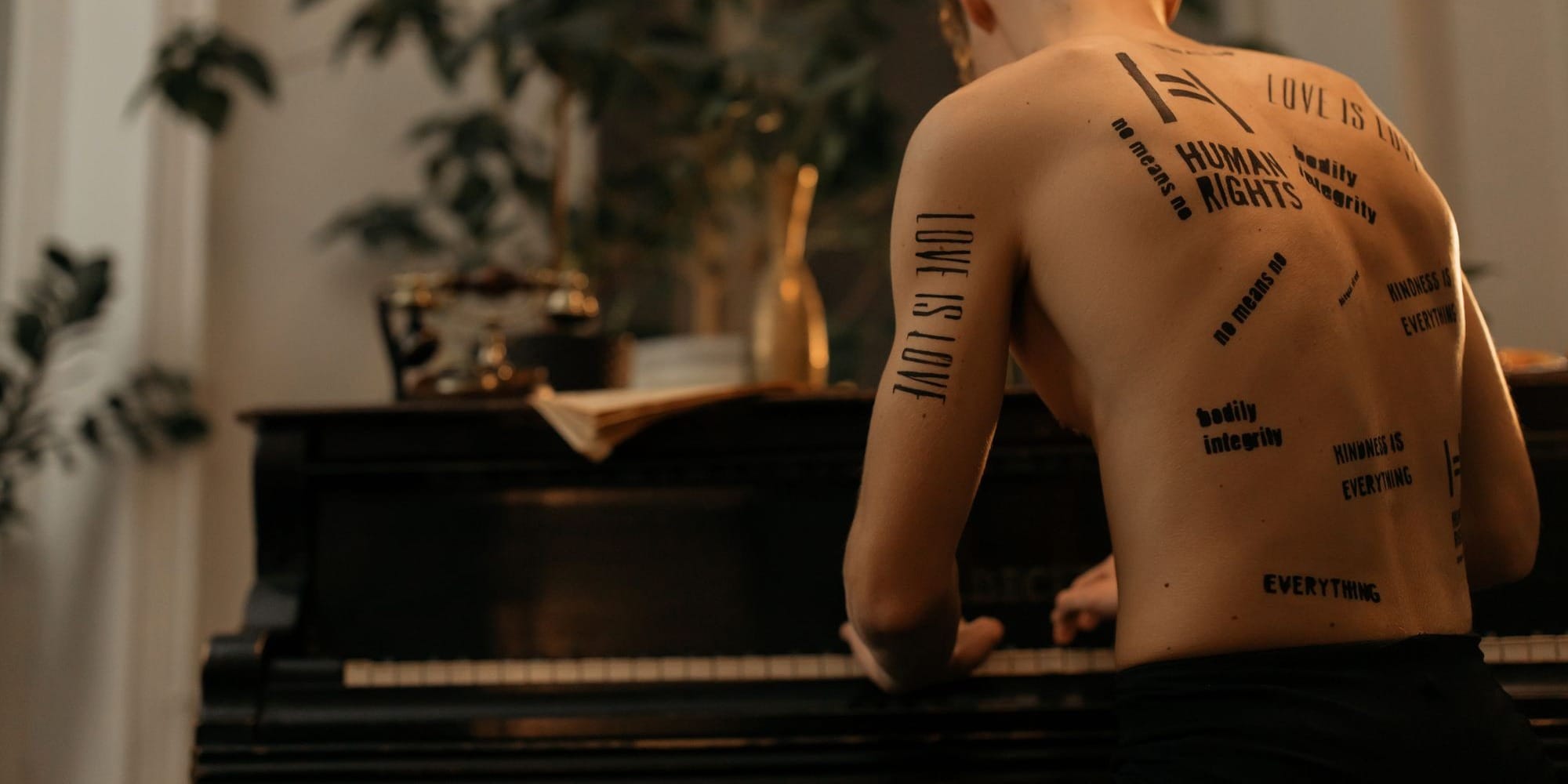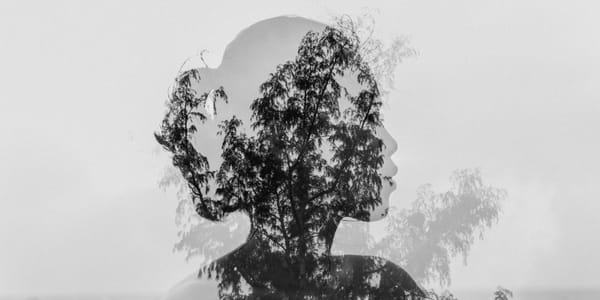Don’t hate me — I don’t mind the tattoos themselves, and I’ve even been planning on getting one or two recently. Ultimately, I gave up on this idea, but maybe someday I’ll return to it. Nevertheless, tattoos are a manifestation of one of the greatest human desires — to make something permanent or even final. And although we know that it’s impossible, we love to fantasize about the idea of overcoming it.
Our body measures time and literally dies every second, but we fantasize about using technology to extend our lives, e.g., by putting our brains inside a mechanical body or extracting data from our brains into some external network that could run forever.
Also, especially when we are young and silly, we fantasize about emotions, e.g., love that could last forever — don’t we all know someone with the initials of their great love tattooed somewhere on them to this day, even though their relationship eventually lasted two weeks or so? Not even mention how many of us fantasize about the stabilization of having someone for life, an ultimate soulmate, and being together forever bound by a great love that even death can’t touch.
Finally, we have egos — our image of ourselves or similar attachments people love so much they can convince themselves that there is something after they die where they can still be themselves as they know themselves — their image of themselves, familiar inner dialogue, and all this.
In one way or another, not realizing or accepting that nothing is permanent, and fighting it, causes most of the drama we know in life. Yet there is also a much bigger problem than just fantasizing about making something permanent — forming ultimate conclusions about life.
When we think of what we really know about life, even for a minute, we quickly realize we don’t know anything. To put aside the biggest existential questions, like where we came from or who we are, let’s do a simpler experiment. Put your hand on your face, then move it to your knee, and finally, open and close your hand a few times. And now, try to explain how you did all this movement. See? You understand it, do it with great ease, and simultaneously, you don’t know it — you can’t put it into words. In other words, there is an understanding or intelligence that goes way beyond our ability to know — beyond the system of symbols humans created.
No wonder a man we call wise — Socrates, said: “The only true wisdom is in knowing you know nothing.” Actually, recognizing: “I don’t know anything” opens the possibility of knowing anything. But people don’t like the idea — most people choose beliefs, assumptions, and various conclusions of “how the world is” to sleep well at night. It’s widely explained as Confirmation Bias, so the tendency to ignore new facts or pay attention only to the ones that actually support our worldview.
Remaining in uncertainty is a way of living of an intelligent being — to be always open to new possibilities. But such an approach requires great courage to admit: “I don’t know.” And many people’s egos don’t allow them to say such a sentence. For example, when we are in a strange city, we get lost and ask someone for directions, many people, especially older ones, will try to guide us to our destination, even though they do not know the way. All because they’ve been living in the city for 30 years, and they just can’t admit they don’t know the answer.
In this way, we’re not only hurting ourselves with a desire to make something permanent in a constantly changing world but with another desire to put existence into a certain framework and understand it. While a great modern guru — Sadhguru, once said: “Life is a mystery to enjoy, not understand.” His approach is wise and offers an endless exploration of existence, but it is also terrifying for humans because it removes a false but solid foundation of knowledge.
Strangely enough, people tend to choose conclusions over exploration or beliefs over truth in order to sleep well at night. In this way, we have religions, various organizations, and even cultures or societies that offer people simple and final conclusions about “how the world is.” And these conclusions become part of their personalities — part of “who they are” and the whole idea of where they are and what’s happening, which is something even further than a literal tattoo on their skin.
Wherever we were born, we were curious about everything as children. And our culture, society, and its dominant religion have patiently explained to us how the world works, what is good, what is bad, what is real, and what is not, but forgot to say “according to them.” No one tells children: “Think for yourself, look inward,” but: “Be quiet, sit and listen,” as it’s just a process of preparing a new individual to participate in their nonsense. The tattoos we make as adults are one thing, as our minds have been fed with tons of ideas since we came into the world. It’s as Zhuangzi wrote in his book Chuang Tsu: Inner Chapters: “The effect of life in society is to complicate and confuse our existence, making us forget who we really are by causing us to become obsessed with what we are not.”
This is how people die while alive, choosing simple answers instead of endless exploration, spending their lives looking at and comparing the shadows on the wall, as Plato explained in his allegory, and living their lives never really questioning anything after a certain age.
And don’t get me wrong, there is nothing wrong with believing in something, as long as it’s not blind belief, as such belief can lead only to obsession and radicalism. Know who you are and stand for your values, but don’t make tattoos — final conclusions, out of your current beliefs for life because life is a constant creation, not a finished product. Therefore it’s always better to stay open to new possibilities.







